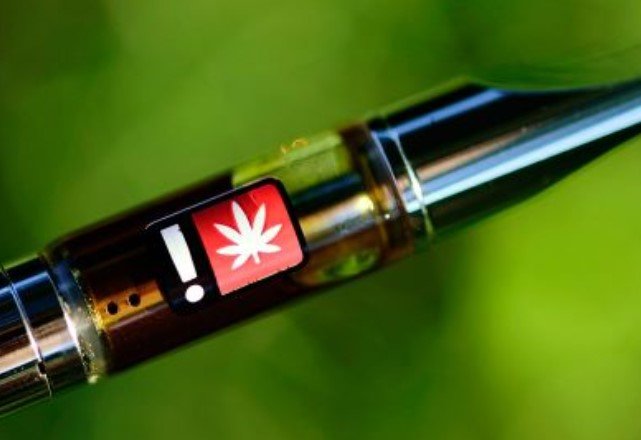An Illinois cannabis consumer is taking on two major marijuana companies, arguing that their vaporizer cartridges exceed state THC limits by a wide margin. The lawsuits hinge on a unique interpretation of state law—one that, if successful, could have far-reaching consequences for the cannabis industry in Illinois and beyond.
Lawsuit Alleges Vape Cartridges Should Be Considered Edibles
Chad Aslip, a Kane County resident, filed separate class action lawsuits last week in federal court against Wellness Group Pharms and Acreage Holdings. His argument? Cannabis-oil vape cartridges should legally be considered edibles, not smokable concentrates.
Under Illinois law, edibles—labeled as “cannabis-infused products”—cannot contain more than 100 milligrams of THC per package. But Aslip contends that because vaporizer cartridges do not involve combustion, they should fall under the edible category rather than being classified as inhalable cannabis products.
That distinction is critical. Vape cartridges commonly contain hundreds of milligrams of THC per gram, far exceeding the 100-milligram limit applied to edibles. If the court agrees with Aslip’s interpretation, it could force major changes in how cannabis vapor products are manufactured, marketed, and sold in Illinois.

Companies Named in the Lawsuits
Aslip’s legal action targets several companies, including:
- Acreage Holdings, a New York-based multistate operator recently acquired by Canada’s Canopy Growth Corp., along with its subsidiaries like In Grown Farm.
- Wellness Group Pharms, along with affiliated businesses Aeriz, Aeriz Management, and WGP Holdings.
Both companies produce THC vape cartridges marketed as inhalable cannabis concentrates, not edibles. Aslip alleges that this is misleading under Illinois law and has led him, and potentially many other consumers, to unknowingly purchase products that violate state regulations.
The Argument: Vapes vs. Edibles
At the heart of the lawsuits is the distinction between smoking and ingestion. Illinois law defines edibles as cannabis-infused products that are “not intended to be smoked.” Since vaporizer cartridges do not burn cannabis, Aslip argues that they fit the edible category, making them subject to the same 100-milligram THC limit.
But this interpretation is anything but settled. The cannabis industry widely considers vape cartridges to be inhalable concentrates, which are typically regulated differently than edibles. If courts side with Aslip, Illinois dispensaries may be forced to relabel, reformulate, or even pull vape cartridges from shelves.
More Cannabis Companies Facing Similar Lawsuits
This isn’t the only case challenging THC levels in cannabis products. Chicago-based Luisi Holz Law, the firm representing Aslip, has filed similar lawsuits against at least six other cannabis companies.
One high-profile case was filed in Cook County in December against Cresco Labs, another major player in the industry. Cresco has already filed a motion to dismiss, and the plaintiff, Felix Rodriguez, has until February to respond.
With multiple lawsuits now in play, Illinois courts could be on the verge of setting a precedent that may force redefining the classification of cannabis vapes.
What’s at Stake for Illinois’ Cannabis Industry?
If Aslip’s argument holds up in court, the implications for cannabis businesses could be significant:
- THC Limits on Vape Cartridges: Companies may have to reduce THC levels in vape products to comply with edible restrictions.
- Labeling & Packaging Changes: Vapes could be rebranded and repackaged to align with state definitions of cannabis-infused products.
- Potential Product Bans: If existing vape cartridges don’t meet edible THC limits, they might be removed from store shelves.
- Consumer Impact: Customers who rely on high-potency vapor products could see fewer options and higher prices.
Illinois’ $1.5 billion cannabis industry has seen explosive growth, but increased legal scrutiny—especially over THC potency claims and product classifications—is creating uncertainty. These lawsuits could have national implications, as other states might face similar legal challenges.
For now, the industry is waiting to see whether Illinois courts buy into the argument that vape cartridges should be classified as edibles. If they do, cannabis companies may have to rethink how they sell one of their most popular products.
